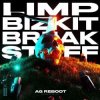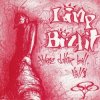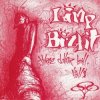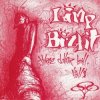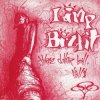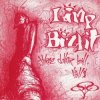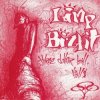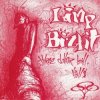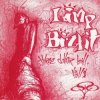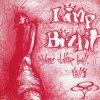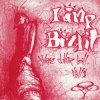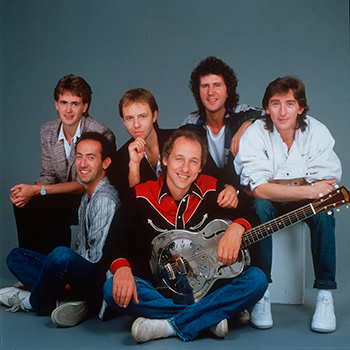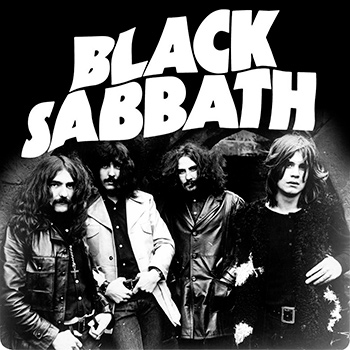
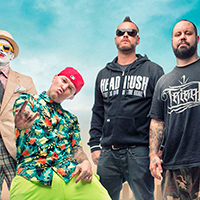
Limp Bizkit — Biography, History, Discography
Years Active: 1994 — present
Genres: Nu Metal, Rap Rock, Alternative Metal
Country: USA
City: Jacksonville, Florida
Band Members
- Fred Durst — vocals
- Wes Borland — guitar, backing vocals, visual style
- Sam Rivers — bass guitar
- John Otto — drums
- DJ Lethal — scratching, sampling, keyboards
Formation
Limp Bizkit were formed in 1994 in Jacksonville, Florida, USA. The idea for the band came from Fred Durst, who at the time worked as a tattoo artist and was passionate about both hip-hop and metal. He met bassist Sam Rivers and his cousin, drummer John Otto. Later, guitarist Wes Borland, known for his eccentric appearance and visual aesthetics, joined, along with DJ Lethal (formerly of House of Pain).
The name Limp Bizkit was intentionally provocative — chosen to emphasize the absurdity, anti-glamour, and irony that would define the band’s character.
Debut and Breakthrough (1997–1999)
In 1997, they released their debut album "Three Dollar Bill, Y’all$", produced by Ross Robinson (known for his work with Korn and Slipknot). The record blended hardcore aggression, heavy riffs, and rap vocals. Their cover of George Michael’s "Faith" became a signature track of their early years.
True success arrived with the release of "Significant Other" (1999). Hits such as "Nookie", "Break Stuff", "Re-Arranged", and "N 2 Gether Now" (featuring Method Man) pushed Limp Bizkit to the top of the global charts. The album sold over 16 million copies worldwide and became one of the defining records of the nu metal era.
Peak Popularity (2000–2002)
In 2000, the band released their third album "Chocolate Starfish and the Hotdog Flavored Water", which debuted at #1 on the Billboard 200. It set a first-week sales record with over 1 million copies sold in the U.S.
Hits like "My Way", "Rollin' (Air Raid Vehicle)", and "Take a Look Around" (from the Mission: Impossible 2 soundtrack) became generational anthems. The band headlined major festivals, including Woodstock 1999 and Ozzfest, known for their wild energy and theatrical performances.
Decline and Search for a New Sound (2003–2008)
Their fourth album, "Results May Vary" (2003), received mixed reviews due to the absence of Wes Borland, who had left the band. Despite the success of the single "Behind Blue Eyes" (a cover of The Who), critics noted a lack of their trademark intensity.
In 2005, they released the EP "The Unquestionable Truth (Part 1)", a darker and more political effort, though it failed to achieve commercial success. Afterwards, the band went on hiatus as members pursued solo projects.
Comeback and "Gold Cobra" (2009–2015)
In 2009, Limp Bizkit announced their reunion with the classic lineup. Their 2011 album "Gold Cobra" was praised by fans for returning to their heavy, groove-oriented roots.
The band embarked on extensive tours across Europe, Asia, and South America, reaffirming their reputation as one of the most in-demand live acts in the nu metal scene.
Modern Era: "Still Sucks" and New Tours
After years of anticipation, in 2021 Limp Bizkit released "Still Sucks". The album served as a nostalgic yet fresh return to their signature sound, receiving positive feedback from fans. The single "Dad Vibes" went viral on social media, sparking renewed interest among younger audiences.
From 2022 to 2024, the band continued their global “Still Sucks Tour”, performing at major festivals such as Download and Hellfest. Limp Bizkit proved their energy and humor remain intact, with a fan base that now spans generations.
Selected Discography
- 1997 — Three Dollar Bill, Y’all$
- 1999 — Significant Other
- 2000 — Chocolate Starfish and the Hotdog Flavored Water
- 2003 — Results May Vary
- 2005 — The Unquestionable Truth (Part 1)
- 2011 — Gold Cobra
- 2021 — Still Sucks
Influence and Legacy
Limp Bizkit are considered one of the defining symbols of late-1990s and early-2000s nu metal, alongside Korn, Linkin Park, and Deftones. They helped popularize the fusion of rap and metal, paving the way for a new generation of artists.
Their influence can be heard in bands like Bring Me the Horizon, Hollywood Undead, Papa Roach, and many others. Limp Bizkit remain one of the most recognizable icons of the MTV era — a symbol of the bold, ironic, and explosive sound of the late 20th century.

